Avengers: Endgame - Looking Back on the Biggest Movie Ever
Endgame not only did not drop the ball, but it delivered for fans so much that it went on to become the highest-grossing movie of all time!
Incluvie Foundation Gala - Learn More
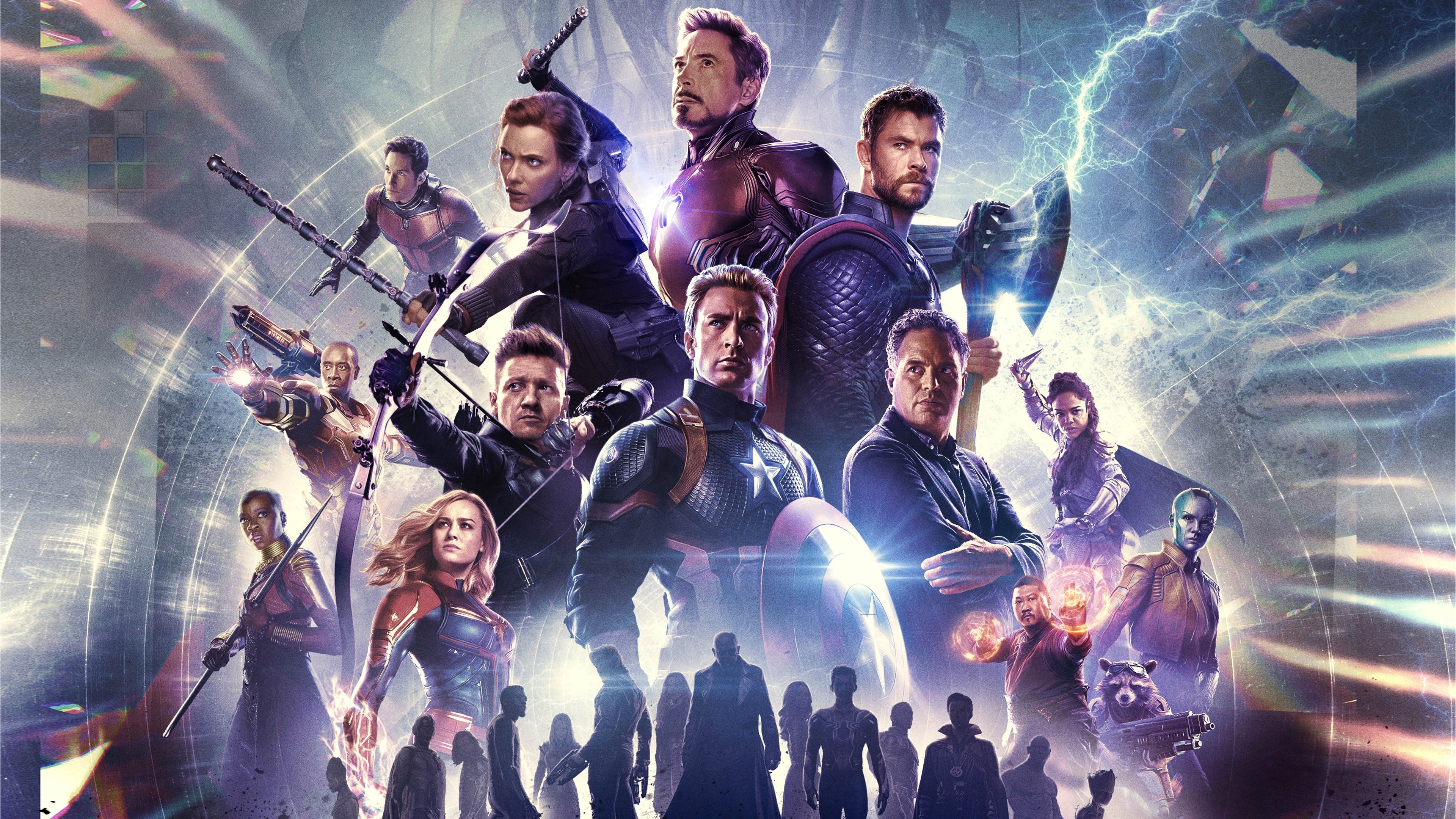

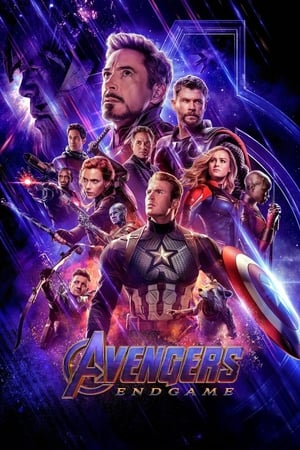


Unknown Origins is a Spanish murder mystery about people getting killed in specific ways — they imitate the origins of famous superheroes.
At first, the movie starts out promising. The deaths are gruesome; one victim has his heart removed and dies in a suit of armor, imitating Iron Man. This seems to show that the film means business. This is going to be a mature and dark film.
Nope.
While the film still carries other dark elements, it unceremoniously spirals into cringy comedy. The problem mainly lies in one of the characters. We follow a cop named David (Javier Rey) and a comic book store owner named Jorge (Brays Efe). Jorge joins the investigation due to his knowledge on superheroes and partners up with David.
Albert Acosta is a filmmaker whose work spans commercials, music videos, and photography. His debut narrative film, a short entitled (ha-ha), in which a young man grapples with insecurities about his laugh, is premiering at film festivals around the country (and will be available to the public soon). We chat about the genesis of (ha-ha), juggling many hats as an independent filmmaker, the feature film that never was, telling endearing stories on shoestring budgets, how Acosta’s upbringing and personal experiences find their way into his artistic endeavors, inclusivity in film, and the future of the art form. More about (ha-ha) can be found on Letterboxd and Instagram.
Jeremy: (ha-ha) has been selected for a couple of film festivals. Congrats!
Albert: Thanks. We got into two festivals as of right now. We got into Tallgrass Film Festival and Indie Memphis Film Festival.
Jeremy: When I watched (ha-ha) for the first time, I watched it twice. One time to get the overall sense of it and then again to put some more thorough thoughts together. The first thing I want to talk about is how this came together, and how you met Zander [Torres] and Cesar [Coto] and how the project came to be.
Albert: Zander is really fun to work with and I think it definitely shows through this film, because he’s a funny guy, so I think he was able to embody the character pretty well. I met Zander through a buddy of mine in 2020, and we shot this really micro, two-minute short in the middle of a pandemic, when we were sort of feeling uninspired and unmotivated. We were forcing ourselves to go out there and create and I asked a buddy, “Do you know any actors?” and he sent me a small clip that Zander did.
A few days ago, Marvel decided to release the first trailer for Black Panther: Wakanda Forever. Fans are undoubtedly hyped for the premiere of the sequel. It will be a very hard pill to swallow knowing that T’Challa (Chadwick Boseman) will not be returning for the film. It does, however, have a bittersweet sentiment to the film knowing that his sister Shuri (Letitia Wright) will become the next Black Panther and team up with the new Iron Man or, in this case, Ironheart (Dominique Thorne). In the trailer for the sequel, audiences see Shuri taking the throne, or at her brother T’Challa’s funeral wearing an all-white dress. We see Atlanteans under the ocean and attack the people of Wakanda. The emotions of the audience finally come to a head when Ramonda (Angela Bassett), the Queen Mother of Wakanda, goes off and says how she lost her family as the scene cuts to a mural of T’Challa.
There is a lot to unpack in the shots we see in the trailer. However, it is painfully obvious that, as of now, Wakanda Forever is probably the most hyped movie of 2022. I’ll even go as far to say that it will probably be better than the original. Here’s why I believe all of that to be true.
As previously stated, once fans have seen the giant mural of T’Challa as drummers play a backbeat, probably at his funeral, it will be hard knowing that we will never see his Panther on screens again. It’s probably a cinematic loss but it might make the film even more emotional knowing the loss. His presence, or lack thereof, will be more impactful than that of the first film.
T’Challa’s earnestness and energy were felt from his first appearance in Captain America: Civil War to Endgame. A day will never go by when fans don’t think long and hard about the hero in the costume. Fans will quickly be moved at the shift in the guard.
MAJOR SPOILERS AHEAD FOR SEASON 3 INCLUDING THE FINALE!
Remember when the Marvel Cinematic Universe gave us a special feminist moment with all the female superheroes in a lineup in Avengers: Endgame? I don’t know if you recall this, but the Season 2 finale of The Boys also did something similar when Maeve (Dominique McElligott), Kimiko (Karen Fukuhara), and Starlight (Erin Moriarty) beat the Nazi out of Stormfront (Aya Cash). In fact, The Boys has been pretty big on female empowerment from the start, be it through the ridicule of patriarchal standards or through giving characters genuine moments of rebellion. Examples of the former would include the makeover of The Deep (Chace Crawford) after his assault on Starlight became public news and the way Ashley (Colby Minifie) stays loyal to Homelander (Anthony Starr) despite regular neglect from him. Examples of the latter would include Starlight doing an Instagram live about Vought’s lies and Maeve holding her own in a fistfight against Homelander himself. The last moment is from the Season 3 finale.
As a queer person, the “bury your gays” trope always rubs me the wrong way. Something about the foreshadowing surrounding Maeve’s under-the-table dealings with Butcher (Karl Urban) to help kill Homelander had me feeling uncomfortable throughout the season. Hearing that she had been abducted was really a bad omen, you can say. But then, The Boys is also one of the few shows to openly address bi-erasure in media by having Ashley tell Maeve that being a lesbian is an “easier sell” when she was coming out and her girlfriend pointed out she was actually bi and not gay. So, I held on to hope. Eventually, they revealed Maeve isn’t dead, and the writers gave Maeve a really empowering moment of looking into Homelander’s eyes while in a power-nullifying prison cell with him only to realize and say to his face that he’s scared!
The buildup of her disgust for the leader of the Seven finally came to what seemed like a payoff in the Season 3 finale, as she got into a brawl with him... and didn’t die! I don’t think we could have put it simply under “bury your gays” if she had, but she didn’t in the first place! It was even WITHOUT plot-armor, because she got grievously injured. Then she went and sacrificed herself in order to prevent Soldier Boy (Jensen Ackles) from killing everyone and I felt like that was gratuitous, and might even fall within the trope. Except, she didn’t die, did she? Not only that, she got to get away! With her girlfriend, she retired after officially faking her death. So not only is the gay not killed, she’s given a happy ending! This is genuine ally-ship, and Incluvie approves.
Next, let’s talk about Marvin, or M.M. (Laz Alonso) as the group calls him. Right from the first season, his inclusion had felt like positive representation, because he wasn’t a mouthpiece for the black community but a genuinely motivated character. He has political inclinations based on his past and his motivation is based in a story of White Supremacy, and also of capitalism. Would Marvin’s dad have failed at getting justice for his wife if a black superhero had killed her? Based on Vought and its capitalist inhumanity, I’m going to say yes. But does it not have significance that she was killed by a straight white male that upheld toxic masculinity with his macho alpha personality and basically represented the straight white male America? Of course! And his celebration when Soldier Boy’s shield breaks during the brawl in the Season 3 finale says it all.
There was a time when comic books were not only geeky, but a total "guy thing." Whenever I hear conversations about superheroes, it would be two guys arguing about whether Batman can take down Superman. I will admit my love of comics did come from watching comic-book film adaptations, but once I realized there weren't enough superheroes being represented on the big screen, particularly super heroines, I decided to do a little research of my own. It turns out that all the superhero films I grew up watching were directed by men, and the comic book nerds were mostly young boys and older men. Of course, there are young girls and women who are into comics, but it would make sense for them to feel overshadowed by the overbearing masculinity in the comic book industry, and by Marvel Studios. But, all that has changed. As many of us know, Marvel Studios has taken an interest in women-led superhero films, but some of us are oblivious to the women behind the camera and the pen. In this article, we'll be discussing women in Marvel, including women directors of Marvel films, women show runners, and writers of Marvel series. [Texts bolded in red are links to Marvel.com]
Before Captain Marvel was adapted in to a film, I remember seeing a comic book of a superhero with blonde, short hair, labeled Captain Marvel, and my first thought was, she must be the most powerful superhero if she's named after Marvel Comics. The point is I didn’t know much about her, and sometimes, when I see a superhero onscreen that I’m not familiar with, my expectations aren’t that high. But, there was no disappointment in watching Captain Marvel. My only disappointment is that not enough people are talking about this Superhero film. Not like the recent Marvel superhero films. This film has been directed by the filmmaking duo Anna Boden and Ryan Fleck. This means, technically, Captain Marvel is the first Marvel superhero film to be directed by a woman.
That quote by Wanda Maximoff (Elizabeth Olsen) in her first scene in Doctor Strange in the Multiverse of Madness is the center of my argument against the MCU’s latest feature film. Directed by Sam Raimi, it follows Maximoff’s efforts to return to the life we saw her living in the second half of WandaVision with her kids and her conflict with Dr. Strange (Benedict Cumberbatch) for said efforts. So it's essentially a film about how Wanda process grief. And yet, the film is set in Dr. Strange's universe, with him in the pivotal role. Yet, his role is pivotal only in the sense of somewhat being the protagonist and having his name in the film. The central character who goes through the most changes and puts things into motion is Wanda. So the name of the film itself is an example of how the woman's story is for some reason being told from another man's perspective. It’s like saying Wanda does warrant a series on Disney+ but as far as theatrical releases go, even if it’s about her and Dr. Strange just happens to be there, he deserves to serve as the agency for her development and deserves to be the protagonist of her story. I’m terribly disappointed in MCU for the direction of the narrative in Doctor Strange in the Multiverse of Madness.
For anyone yet to see the film, what follows contains MAJOR SPOILERS for both WandaVision and Doctor Strange in the Multiverse of Madness.
To start off, Wanda’s first contact with any of her co-Avengers since Avengers: Endgame is with Dr. Strange now, after the whole affair at Westview. And that too just because Dr. Strange needs her help. And he does the most man thing to do - reminds her that her children weren't real and she should stop her crusade to replace a Wanda from another universe so she can spend time with that Wanda's children. Now, Wanda’s jibe at Strange, which is quoted at the beginning of the article can be interpreted as a critique of the way toxic masculinity always turns the narrative on its head when a woman is involved. However, there is no question about morality presented. It’s through Wanda that we’re given an in-depth look at how a mother grieves the loss of her children, but its expression isn’t seen as grey. It’s clear that her modus operandi of dealing with losing her children must be condemned. Her actions could have apocalyptic consequences and we shouldn’t be seeing her as a grieving mother but as a possessed villainess or Witch to play along with her alter-ego name. So while the quote from Doctor Strange in the Multiverse of Madness with which I started the article acknowledges the double standards set by the patriarchy, the film itself has double standards.
Why I say it has double standards is because Dr. Strange wasn’t seen as the villain and neither was Spider-man in Spider-man: No Way Home. While your best friends not getting into their dream college for no fault of theirs is heartbreaking for a career-focused student, using forbidden sorcery to deal with that is treated as a desperate measure but not a villainous act. After the spell is messed up and multiversal consequences happen, it’s seen as an unfortunate fallout of an honest but misdirected attempt but Peter is clearly not treated as an antagonist. And yet, Wanda’s use of forbidden magic to deal with the loss of her children is not to be condoned. The opening quote of this article is essentially self-explanatory but I want to argue that this obvious lack of consideration for Wanda insinuates it’s not just her co-Avengers, but her writers who aren’t really concerned about her and dehumanize her for having magical powers. She’s supposed to be in control as an adult with powers that can have catastrophic effects, even in a period of extreme emotional turmoil for her, and especially without any genuine support, which I might add Peter Parker had a lot of. She clearly needs a rest from the world but no one's offering her an alternative to the desperate efforts she's making to deal with her grief while blaming her for not being dysfunctional.
In fact, this isn’t just a sexist matter. Stress leaves are a real thing. And for good reason. Expecting and demanding full functionality during a time when someone is emotionally or physically compromised is a consequence of Capitalism. There are also mental health resources available to anyone who feels unable to function at their usual level on a daily basis. And despite featuring a therapy arc on The Falcon and the Winter Soldier, MCU decided not to give Wanda an arc about that. It’s like everything learned during sensitivity training shouldn’t apply to one of the few meaningful female characters in the universe. She is extremely traumatized, with each new traumatizing event piling on the other with barely any time between them, which is universal to almost every MCU character at this point. It feels regressive that Wanda isn't given any means to properly heal from her trauma and develop as a character. What’s worse, as if to give her a feminist narrative, her hunt is just for her kids and no longer for Vision even if keeping Vision alive had been the reason behind everything that happened in WandaVision, since that would apparently imply that Wanda doesn’t need a man in her life to make her feel fulfilled.
The year is 2002. The anticipation is high. All Marvel fans are dying of excitement. Their favourite webslinger is coming to silver screens. He’s been the subject of many animated shows over the years, and now Tobey Maguire is set to don the blue and red costume and swing through New York as he rescues his crush Mary Jane, to be played by Kirsten Dunst. Sam Raimi’s film releases and exceeds all expectations. Fans are already sure this will go down in the hall of fame of comic book films. And what’s more, it becomes a trilogy! By the third one, it’s understandable why there can’t be any more, because it’s run its ground and it’s impossible to return after the Bully Maguire memes made a mockery of the third installment. And a decade after the first Spider-Man, another up-and-coming actor, who’s just starred in Oscar-winning film The Social Network, comes back as the beloved hero. He’s naturally broody, lanky, and has the perfect athleticism for the character, but this time there’s mixed anticipation because some won’t move on from the trilogy, and some feel this could be even better. Unfortunately, there’s a pacing issue and a darkness issue, and Spider-Man's essence is lost in the tragedy, which is, to be honest, the biggest tragedy, because Garfield’s vibe is much closer to Spider-Man, and his Peter is just the right balance between nerd and dork. After two movies, it’s shelved, and fans are starting to give up on the idea of a good closure for Spidey. But then the biggest phenomenon in comic book cinema happens, and in Captain America: Civil War, we meet the latest man to play the character. He fits the bill in every way. He’s just as comic and awkward and funky and nerdy and charming as Peter Parker, and he looks like a sixteen-year-old. And five years after his introduction, near Christmas, comes the most ambitious Spider-Man live-action project, the film that’ll hopefully provide the closure fans needed. But unlike its predecessors, it lacks heart, so forget about closure, you won’t even remember the film beyond the unforgettable fan service that Spiderman: No Way Home does for the fans, as pointed out by Daleyna in her review. It's chock full of dream-come-true moments for Spidey fans, but its lack of substance reeks of a self-indulgence that is rare even in fan fiction.
So why did I just revisit the journey? Because that’s what Spider-Man: No Way Home wants me to do! It even alludes to the film I left out, the only film based on Marvel Comics to win a Best Picture Academy Award, Spider-Man: Into the Spider-Verse, but we’ll come to that one later. The weight of the entire emotional journey of 19 years is unnecessarily taken on its shoulders by the latest MCU film, and as expected, it can’t carry it. Firstly, just to get this out of the way, Uncle Ben from the original trilogy owns that line, and you either quote it, or don’t say it, but making Aunt May say a modified version of the great responsibility line, is extremely tacky, especially once you realize they’re trying to recreate the original scene by making her die right after. Uncle Ben has died in both of the previous movies' series, and in both, an expected response was elicited from the characters, but Tom’s Spider-Man isn’t sure what to feel! Yes, he’s always had issues with articulation as seen in the adorable conversation with Zendaya’s Michelle on the bridge, but he’s at least had a fleshed-out personality. Here, he seems to need to unravel but is somehow not allowed to. You can feel a certain tension in his character development, in the sense that its lack is hampering his accessibility. He’s angry, but absolutely reserved about it, he goes from crying on a rooftop to geeking out with his counterparts from the previous installments as if we can just shelf the tragedy for the moment to give the audience the fun it’s been waiting for, and altogether, his characterization is simply messy. Even the sacrifice at the end seems to come from a need from the storytellers to have him lose everything, to bring him up to speed with the tragic atmosphere from the previous films, and though it does succeed in crushing the soul, it doesn’t offer enough explanation. Whenever Dr. Strange is involved, only unbelievably ruinous consequences are on the table, it seems, that are supposed to be accepted because magic is an unknown realm we shouldn’t try to comprehend beyond the minimum information that’s offered.
The introduction of every Spider-Man villain ever, is an unnecessary move to appease the fans. Of course, we want our buddy cop moment of Garfield and Maguire and Holland all fighting Green Goblin, Doc Oc, Lizard, Electro, and Sandman, but does that really justify doing it? The Spider-Men themselves had messy arcs but that reflects on their essence of being a very common person, representing the regular making-do, despite having superpowers, and yet they did have some conclusion. Letting Andrew's Peter catch Zendaya is an absolute joke, and no one even takes it as a sincere attempt at closure, so it's again a crowd-pleasing tactic, which this movie doesn't seem to lack. The same argument about conclusions goes for the supervillains as well. All of them had properly concluded stories, whether the conclusions felt organic or not. And reviving the old lore, to make Spider-Man into his Mother Theresa version we all knew was lurking under the surface, couldn’t have been done worse. There’s no emotional journey for the characters. And that’s primarily because they aren’t at junctures, they’re literally reappearing after their stories have ended. None of them seem to need to be cured, and even after they are, there’s no honest reconciliation, and it’s just an end to another Avengers: Endgame-scale affair. This is where Spider-Man: Into the Spider-Verse comes into play. There are 6 versions of Spider-Man in that film, a black kid, a white man, a young woman, a little girl from the future, a black and white Nic Cage voiceover, and a pig. Why does this ragtag team make a more compelling case? Simple. They’re all at transition points or stuck, and their role in the life of Miles Morales actually reflects on themselves and helps them grow. It’s an emotional journey on top of a cosmic scale plot. In fact, despite being decidedly more lighthearted than Sony’s other Spider-Man ventures, the animated feature actually justified making such a big deal about the characters, and that’s the kind of satisfaction you’d hope for, from Spider-Man: No Way Home. Unfortunately, the latter is only a bunch of dream-come-true moments with barely anything real to say about the world or about the characters. It’s just there as 'a love-letter to the fans', to quote Daleyna’s review I cited earlier.
Spider-Man: No Way Home isn’t just a movie; it’s an experience. Like Avengers: Endgame, it is a monumental moment in the MCU. It changes everything. This is the best superhero movie I’ve seen since Avengers: Endgame. Spider-Man: No Way Home is a top tier cinematic and comic book superhero movie thanks to the amazing writing, the fantastic performances from the actors all around, and, maybe most importantly, a healthy helping of fan service. This movie is littered with easter eggs and references that made my theater explode into cheers and applause. It’s an experience unrivaled, even nonexistent, among any other movie genre. As an avid Marvel fan who’s watched and enjoyed everything associated from the brand, this movie was so rewarding to watch. With that, let’s dive into what made this movie so incredible.
Spider-Man: No Way Home picks up right where Spider-Man: Far From Home left off. It makes you forget two years have passed between these two films. Peter Parker’s (Tom Holland) identity has just been revealed. He scoops up his girlfriend MJ (Zendaya) as she’s harassed by onlookers and they escape. Soon enough, the FBI is after Peter. They arrest him and his Aunt May (Marisa Tomei), MJ, his best friend Ned (Jacob Batalon), and Happy Hogan (Jon Favreau). The agents and Peter’s loved ones have some interesting debates about whether a minor should be a vigilante and how responsible his legal guardian is for his actions.
Peter and the gang then meet with Peter’s lawyer Matt Murdock (Charlie Cox)! My theater exploded in cheers when he showed up, which made me so happy because I had no idea Netflix’s Daredevil was so well known. That show is arguably the best superhero TV show of all time. The cameo is brief, but Charlie Cox portrays the character without missing a beat, as if he’d just stepped off set from Daredevil. I can’t wait to see more of him in the MCU.
Peter and May move to Happy’s apartment to lie low. Peter applies for college. However, he, MJ, and Ned all get rejected because of the controversy surrounding them. This leads Peter to visit Doctor Strange (Benedict Cumberbatch) and ask him to make everyone forget who Spider-Man is. Strange performs the spell, but Peter alters it by asking Strange to make his loved ones remember his identity. The spell becomes unstable and Strange contains it before sending Peter to plead his case to the vice chancellor of MIT.
At Incluvie, we provide movie reviews and ratings through a lens of representation. When the world lost Chadwick Boseman on August 28, 2020, we all saw the enormous and powerful impact of representation in film. The announcement of his untimely death on Twitter was the most liked tweet as of August 2020 [Source]. Why? Because Boseman was not only a Black superhero leading a Black cast in one of the most successful films in history; but his successes paved the way for more, long-overdue diversity in Hollywood.
As the industry posts tributes to their friend and colleague, we can only remember him through the grace and integrity he left on screen. Boseman was necessary to the film industry; we needed him. Every systematically oppressed person needed him, and his strong, well-rounded characters. Boseman was more than an extremely talented actor — he was the embodiment of representation’s effect. The writers of Incluvie wanted to do our best to pay a small tribute to his image on screen. Let’s review some of his roles and his impact.
Things just got real in Hawkeye episode 4. Spoilers ahead!
Picking up right where the last episode left off, Clint and Kate are discovered after breaking into her mom’s house. The duo have a sit-down chat with Eleanor and Jack. Kate calls herself Clint’s partner and friend, and Clint reluctantly agrees they’re working together. Afterwards, Eleanor tells Clint she wants to keep her daughter safe, even bringing up that Natasha Romanoff’s goodness couldn’t keep her alive. Ouch! This wound is still fresh, as we see Clint continue to suffer from trauma and grief throughout this episode. Eleanor’s line about goodness clearly foreshadows she might have tossed her morals aside knowing being good wouldn’t keep her and her daughter safe. I’m anxious to see what kind of criminal she is. Could she be Madame Masque?
Clint learns from Laura that Jack is CEO of the shell company employing the Tracksuit Mafia. He’s funneling funds for “the big guy” who has to be Kingpin. I honestly don’t know what to make of Jack anymore after this episode. He’s much funnier in this episode, seeming less like a mustache-twirling villain and more like a bland, cartoonish character with a sword obsession and unclear accent. Even if Jack is working for Kingpin, he can’t be the “big bad” of this series.
Back to Laura: she was the most interesting part of this Hawkeye episode (until Yelena shows up at the end). Hawkeye’s wife might be much more than "Hawkeye's wife." We know Clint tells her about his work and that she’s aware of his Ronin identity. Laura knows more than we thought. She’s interested in the same watch the Tracksuits stole back in episode 1. Why? I suspect it belongs to her. She can even track it from home. Later, Clint tells Kate that the watch belonged to a friend of his who’s been out of the game for a while. All signs point to Laura.
Running with this theory, this means at some point Laura was an agent, just like Clint. A former agent of S.H.I.E.L.D? Most likely. She can speak German and has great intelligence-gathering capabilities. The most interesting possibility is that Laura Barton was formerly Mockingbird, a spy from Marvel comics already brought to life in the show Agents of S.H.I.E.L.D, which is sadly not MCU canon. In the comics, Mockingbird and Hawkeye were married for a time. This concept came way out of left field, but I’m here for it. Does this mean we’ll see Linda Cardellini put on the suit at some point and get involved in the action? Now I’m hoping so.
In 1977, Star Wars changed the world. It took the universe by storm, completely redefining everything everyone knew about movies. But then, in 1980, The Empire Strikes Back changed Star Wars.
Sequels were not as well regarded back then as they are today. Other than 1974’s The Godfather: Part II, sequels were typically seen as mere cash grabs that couldn’t possibly match the quality of the original, let alone exceed it. In the same way that George Lucas’ Star Wars fundamentally changed everything with its release, The Empire Strikes Back shattered this stigma, proving that there were endless story possibilities for more Star Wars.
Directed by Irvin Kershner, The Empire Strikes Back was released on May 21, 1980 — forty years ago today (article originally published 5/21/2020 by Nathanael Molnar). It’s amazing to think about how much time has passed since this seminal film was released, and how much has changed in its wake. We live in an age of franchise movies, where ongoing cinematic stories are ever evolving. Star Wars was essentially the first movie franchise to break into the mainstream. There were theatrical series like Planet of the Apes and Godzilla, but nothing had the simultaneous commercial explosion that Star Wars experienced.
The Empire Strikes Back introduced the concept of an expanded universe by referring to itself as “Part V” in the opening crawl, insinuating more story preceded 1977’s Star Wars. With this, the floodgates were thrown open for large-scale cinematic franchises. This has ultimately grown into what we have today with the Marvel Cinematic Universe; Avengers: Endgame itself just turned one year old. Looking back on Empire, it’s fascinating to examine how the sequel cemented the legacy of this new forming franchise.
Author: Nathanael Molnár, originally published [4/26/2020]
It was Friday, April 26th, 2019. I was sitting in the AMC Dolby Theater, my friends on either side of me. Everyone in the theater was buzzing, excited. A couple of people walked in with light-up arc reactors pinned to their chests. The lights came down, and the iconic Marvel Studios theme blasted through the theater. The audience cheered; everyone was giddy and ready for what we had all been patiently waiting for since May 2nd, 2008. Avengers: Endgame, the fulfillment of the promise of the Marvel Cinematic Universe.
It’s strange to think that Endgame came out a full year ago. I’ve been a fan of the MCU from the very beginning. As a life-long comic book fan, following the unfolding and the blossoming of this entire cinematic universe has been truly magical. It’s something that I’m still surprised we get to see and enjoy. I believe the MCU redefined the comic book movie genre. Comic book movies existed before the MCU and were successful before it. However, under the meticulous leadership of Kevin Feige, the MCU gave us something radically different (current list of all MCU films 2021).
It brought to life the long-form storytelling of comic books, the character arcs that span years, and the meshing of different worlds. In the medium of film, the MCU captured the feeling of reading comic books spanning decades, following characters in their own stories, and then following them into their larger team-ups. Sure, there were the X-Men movies that revitalized the genre when Batman & Robin had essentially killed it. Spider-Man brought whimsy back into the genre, and Batman Begins established realism. It was the MCU that brought consistent continuity, long-form story arcs, and a balance of bombastic spectacle action and genuine character growth and development.
As successful as the MCU became, as popular as The Avengers or Guardians of the Galaxy or Black Panther became, the entirety of this 22 movie experiment hinged on its conclusion. If the MCU didn’t deliver a satisfying conclusion to what this entire thing had been building towards, everyone would have walked away disappointed. Sure, we would still revere the individual films we loved, but the MCU as a whole would have far less significance if Endgame had dropped the ball. On April 26th, 2019, Endgame not only did not drop the ball, but it delivered for fans so much that it went on to become the highest grossing movie of all time!
There are so many interwoven stories, themes, character arcs, timelines, and dimensions! In order to keep track of the MCU films and figure out what to watch when, here’s a list of those that have come out – 29 as of now — as well as what's coming up in the next few years. Included are related articles and Incluvie score (and a fun 1.5 minute TikTok).
First is the release order of the MCU films. This is the way Marvel intended the audience to take in the characters and story arcs. After the release list is Incluvie’s own note and style on how to watch!
1. Iron Man (2008)
2. The Incredible Hulk (2008)
I was 12 going on 13 when I first saw Boseman light-up the screen.
'Happened in the Spring of 2013. A long time ago, but only if you measure it in terms of'—OKAY, this isn’t Stand By Me…

After the devastating events of Avengers: Infinity War, the universe is in ruins due to the efforts of the Mad Titan, Thanos. With the help of remaining allies, the Avengers must assemble once more in order to undo Thanos' actions and restore order to the universe once and for all, no matter what consequences may be in store.

Joe Russo, Anthony Russo
Director

Joe Russo, Anthony Russo
Director
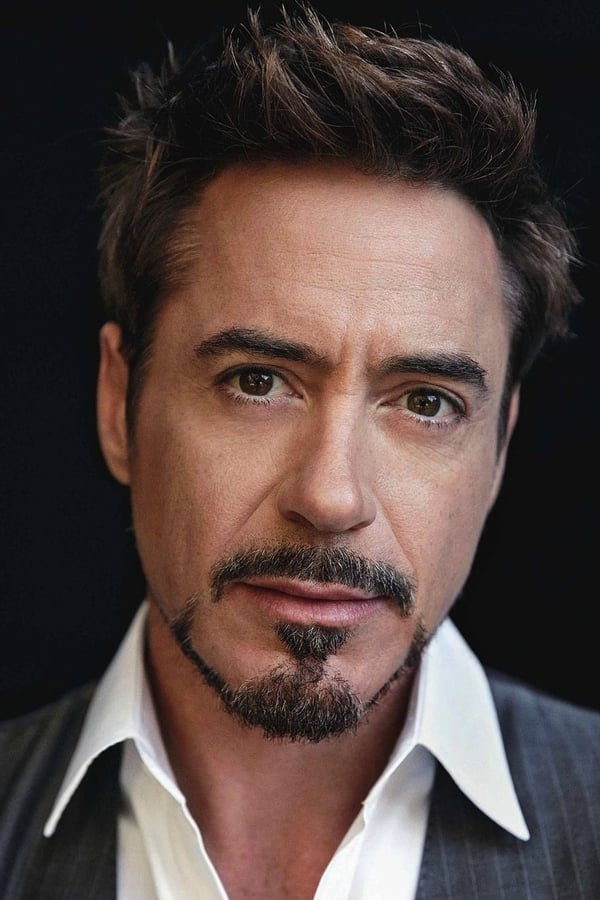
Robert Downey Jr.
Tony Stark / Iron Man
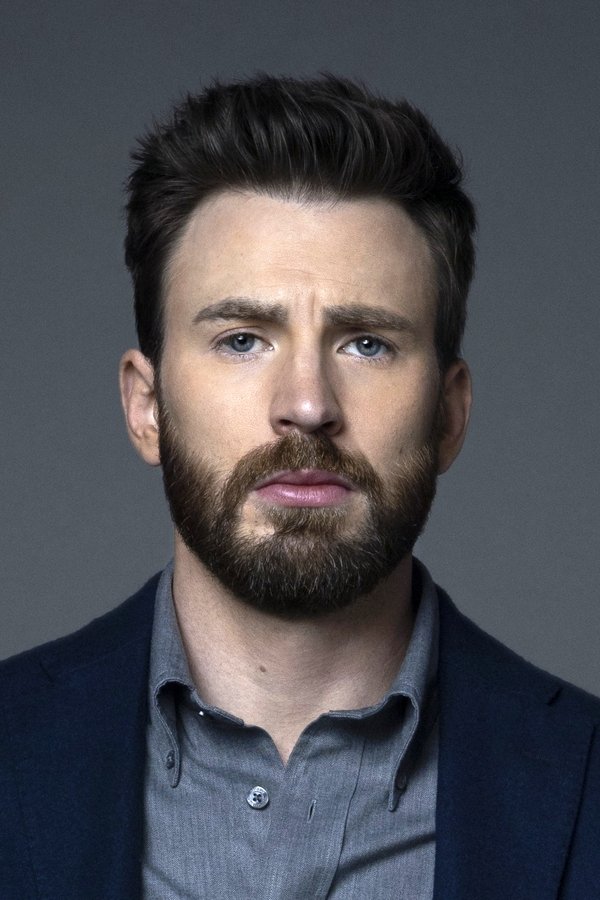
Chris Evans
Steve Rogers / Captain America
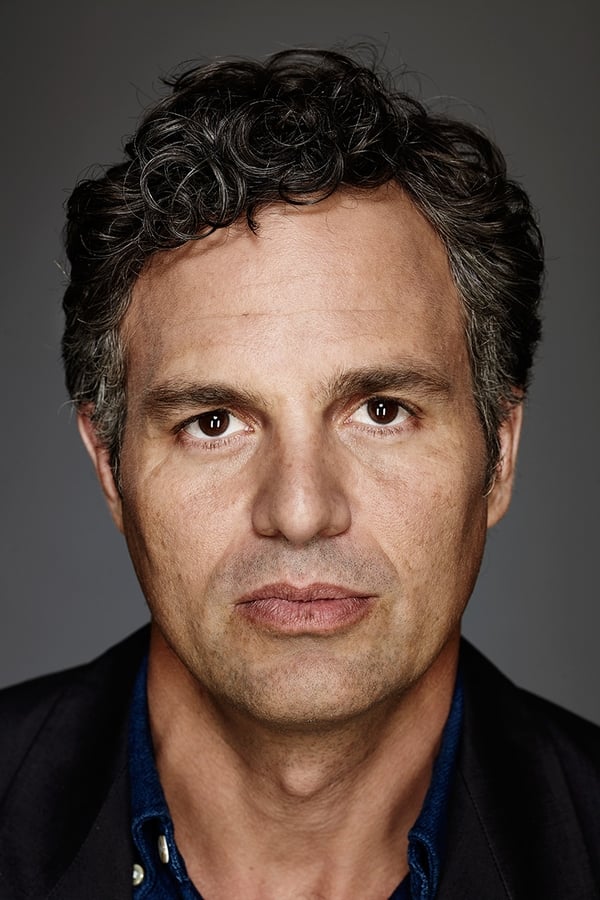
Mark Ruffalo
Bruce Banner / Hulk
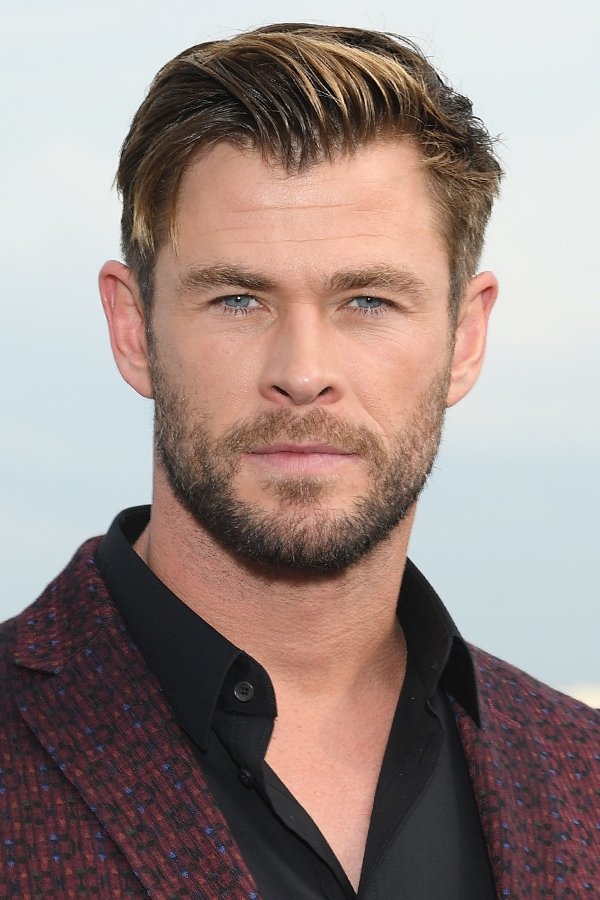
Chris Hemsworth
Thor
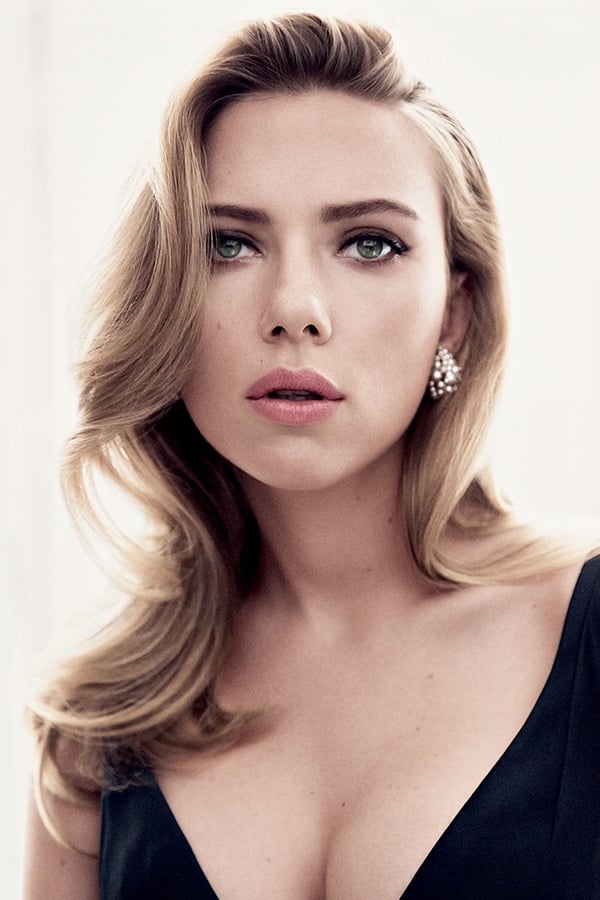
Scarlett Johansson
Natasha Romanoff / Black Widow
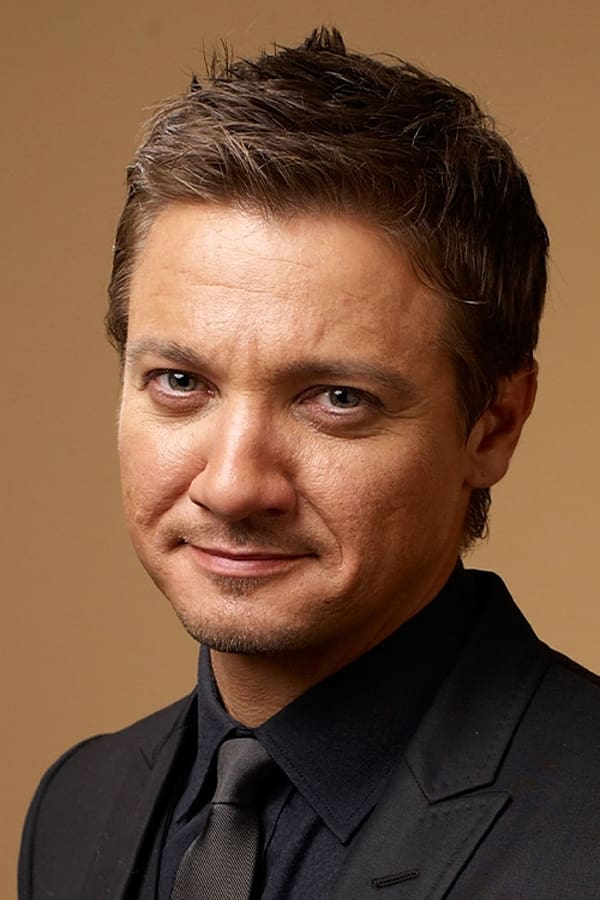
Jeremy Renner
Clint Barton / Hawkeye
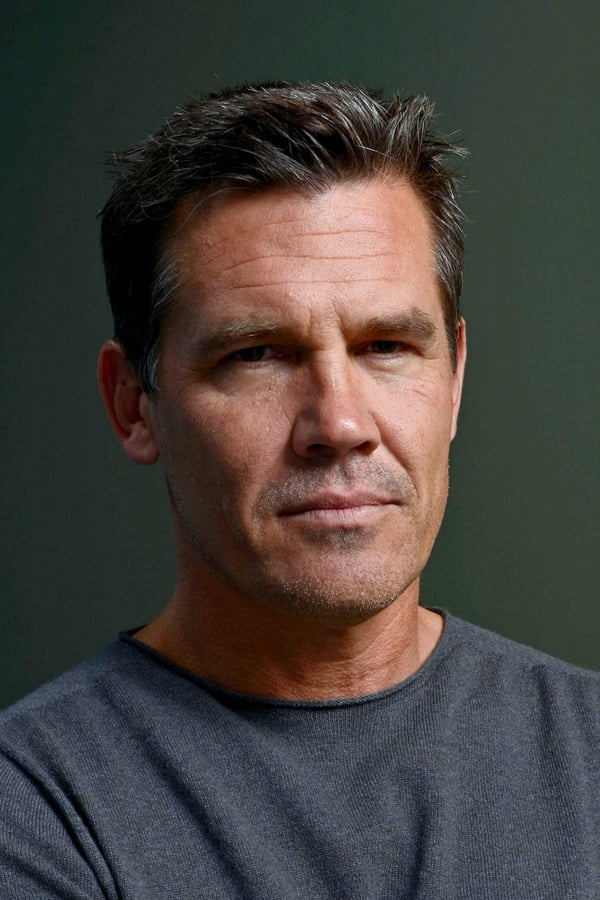
Josh Brolin
Thanos

Don Cheadle
James Rhodes / War Machine
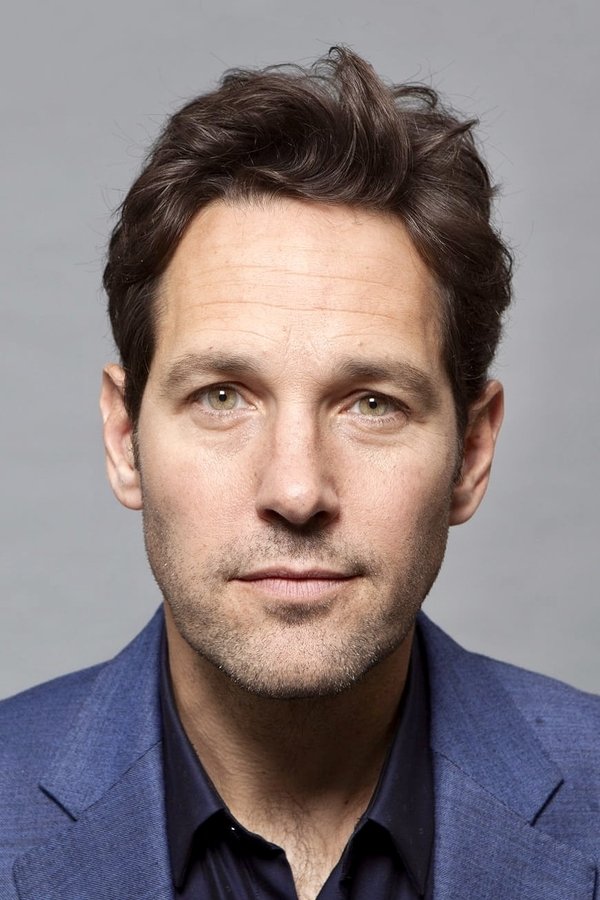
Paul Rudd
Scott Lang / Ant-Man
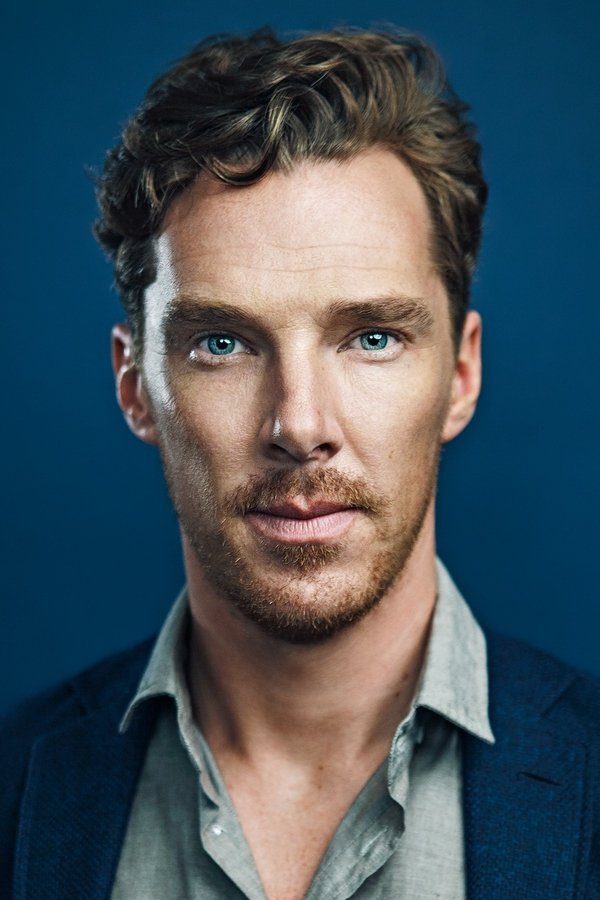
Benedict Cumberbatch
Doctor Strange
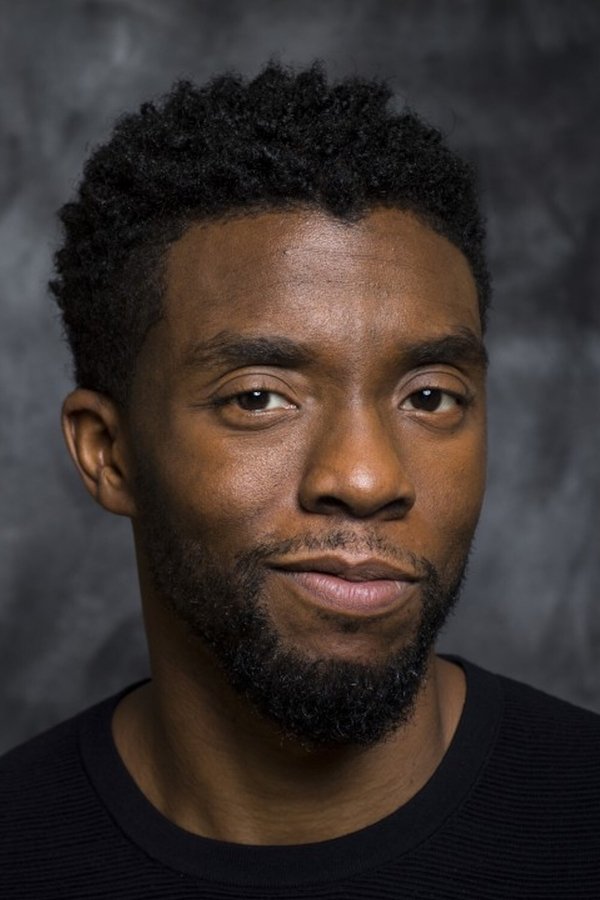
Chadwick Boseman
T'Challa / Black Panther
Endgame not only did not drop the ball, but it delivered for fans so much that it went on to become the highest-grossing movie of all time!
Holiday hijinks ensue when a recently separated couple are both accidently invited to same holiday celebration.
This is ambitious horror filmmaking, and in a lot of ways, I fully admire its ambitions. For me, the film’s sloppiness defines its overall quality.



